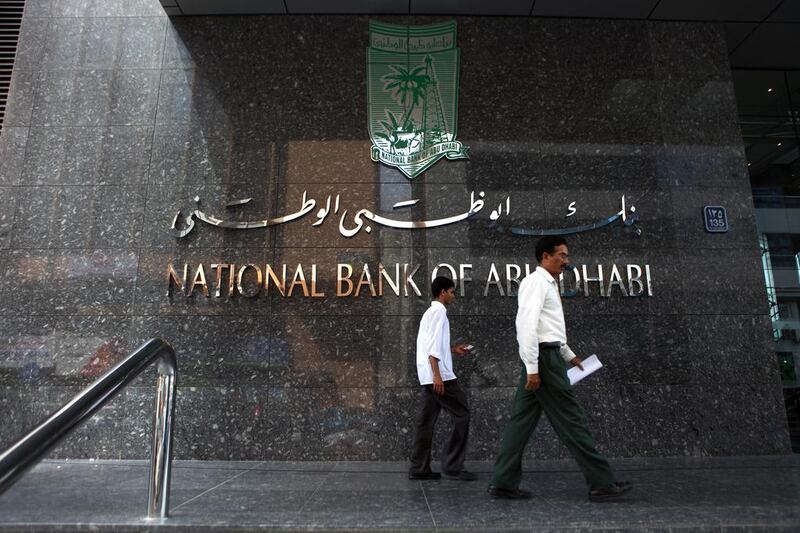Shares of UAE banks, already poised to outperform the broader market this year as profits improve on lower provisioning for bad loans, will get an extra boost from the inclusion next month of the country in the MSCI Emerging Markets Index.
Many banks in the country had benefited last year from a growth spurt in the economy that encouraged corporations and individuals to take out loans to expand their businesses and buy homes and cars. And as cash flows improved, more businesses and consumers were able to pay existing debt, lowering the amount that banks had to put aside for write offs. As a result, a great number of banks, including First Gulf Bank and Noor Bank, reported record profits. These earnings are likely to continue to improve this year.
“What you will see this year is a fall in provisioning and hopefully a pick-up in loan growth,” said Simon Kitchen, a Cairo-based strategist at the Egyptian investment bank EFG-Hermes.
“The real thing that will drive earnings is falling provisioning, particularly if you get some of the state-owned enterprises paying back money. Even if loan growth doesn’t pick up hugely, we will see an improvement in earnings because provisioning will be lower.”
The UAE economy made a strong recovery last year, growing by more than 4 per cent after years of lacklustre performance stemming from the global debt crisis in 2009.
Low interest rates, government spending on infrastructure and Dubai’s clinching of Expo 2020 all lifted property and stock market valuations last year. And this year, the fallout in emerging-markets assets amid the tapering of the United States Federal Reserve monetary stimulus and deteriorating current-account deficits have made the cash-rich UAE a haven for investors, thanks to the dirham’s peg to the US dollar and above-average economic growth.
Dubai's main benchmark index more than doubled in value last year and has gained 39 per cent this year, making it the best-performing equity index worldwide. Meanwhile, Abu Dhabi's main stock measure is up 17.8 per cent. Shares of many banks, such as National Bank of Abu Dhabi (NBAD), have underperformed their benchmarks, and that may make them especially attractive to foreign investors. Shares of NBAD have advanced 10 per cent this year.
"There is some irrational exuberance in some parts of the market – in some asset classes, not all," said Tirad Al Mahmoud, the chief executive of Abu Dhabi Islamic Bank (ADIB). "In some cases the shares were undervalued and it is good to see some asset classes regain their true and fair level of valuation. I do believe that the banking sector was undervalued before, and it's just reaching its true level of valuation."
While shares of ADIB are closed to foreign investors, NBAD, Abu Dhabi Commercial Bank and First Gulf Bank are all slated to be on the MSCI Index. They have above-average foreign ownership limits and will benefit the most as investors scramble to get into quality securities that have avoided speculative price increases.
While international investors may have trouble getting hold of the banking stocks that have low ownership limits, this might change. In the past six months there has already been some easing of these limits at banks including Mashreq and Dubai Islamic Bank.
“With time, the MSCI upgrade could mean that the owners of these banks will relax the foreign ownership limits,” said Mr Kitchen. “There isn’t necessarily going to be demand for these stocks that allow foreigners a small share.
mkassem@thenational.ae
Follow us on Twitter @Ind_Insights





